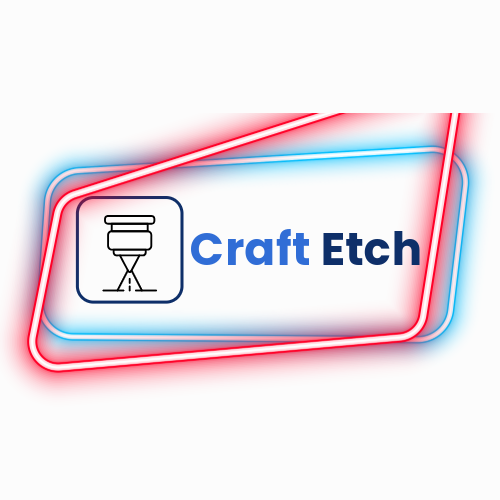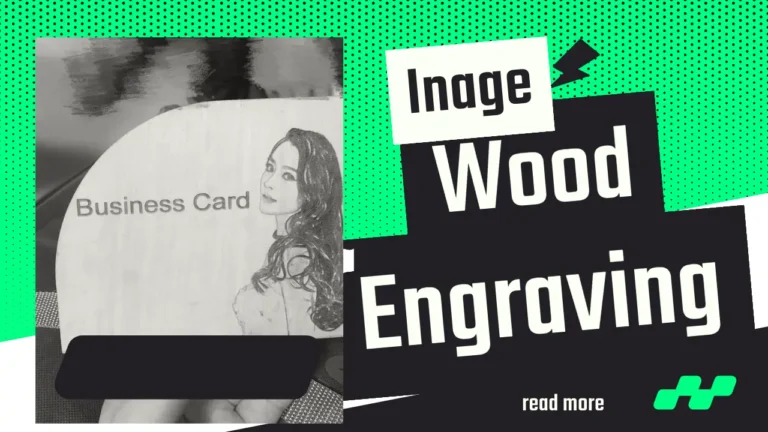Join Workshops
Physical Address
304 North Cardinal St.
Dorchester Center, MA 02124
How to start your laser engraving business in the UK
Establishing a business with laser engraving in the UK can seem quite intimidating.
In this guide, we will be providing you with a comprehensive overview of the key requirements and steps you need to follow to set up your laser engraving business in England.
We will cover right from registering your business through operating and other compliance such as taxes and duties.
Your key takeaways from this article:
- Business registration basics in the UK.
- How to Go About Getting the Right Licenses & Permits
- Understanding VAT and annual taxes.
- The importance of structure in business
- The Right Way to Keep Records for Your Small Business
- A deeper examination of environmental concerns in the laser engraving business
Business Registration Basics in the UK
To set up a laser engraving business in the UK, the first thing you need to do is decide which business structure will be more beneficial to you.
In the UK, the most regularly used business structures include sole trader, partnership, limited liability partnership, and limited company. Each of these options has its legal and tax implications.
A sole trader or a limited company are the most common structures for small UK businesses. The sole trader is usually easier to set up but does not provide any protection for personal assets. On the other hand, a limited company offers liability protection and might have more beneficial tax obligations.
According to the UK government, the sole trader route is pursued by over 4.5 million businesses in Great Britain, but with the benefits of the limited company, structures become increasingly more often used. For instance, if your business is going to involve considerable capital investment and potential liability, for example, in case of product defects, a limited company is the best choice.
The business will require more paperwork, but your assets will be protected due to its separate legal status and limited liability.

How Do You Officially Register Your Business in the UK?
Before you do anything else, you’ll need to register your business officially. Whether you’re a sole trader or a limited company, you’ll first need to register with Companies House.
If you’re a sole trader, you’ll need to register with HMRC to get a UTR. Alternatively, if you’re a limited company, registration with Companies House will automatically generate your UTR.
County, state, or local government and licensing offices may require you to apply for a permit or license. Contact your city or county government, or visit your local government’s website and find the office that issues business licenses.
Here are more than 100 laser engraving business names for you to choose from.
Types of Licenses and Permits You’ll Need
After registering and applying for your UTR, you’ll need various licenses and permits. Requirements vary across the different structures and locations.
- General business license – Most businesses will need a general license granted by your local council.
- VAT Sales Tax registration – If you have a turnover above the VAT threshold, you must register for VAT.
- Home business license – If you run your business from home, you will need to apply for a home business license from your local council.
- Zoning permits – Visit your local city or council to find out what permits you need. You will probably need a permit if you sell homemade engravings, for example, but your name may need to include your home address.
- Health and Safety permits – Depending on the materials you work with, you may need to adhere to safety and health protocol. The Health and Safety Executive provides all of the information you need.
How Do You Manage VAT Sales Tax and Annual Taxes?
Failing to manage your taxes properly can have severe financial consequences. Make sure to know what you need to do.
: If your turnover is above the VAT threshold you must register for VAT and charge it on your goods. In addition, the standard rate of VAT is 20% in the UK. You can recover VAT for business costs and reduce your business taxes. Hence, according to HMRC, VAT revenues form a significant part of the UK tax revenue, so compliance is important.
Income tax is payable on business profits for sole traders and partnerships. For limited companies, you are liable to pay corporation tax on company taxable profits. Moreover, the corporation tax rate is 25%, which was 19% up to April 2023.
Every year, submit your annual confirmations and accounts to Companies House. Furthermore, a company’s HMRC must also be filed. Sole traders and partnerships must also file annual Self-assessment tax returns.
What will you need for record-keeping?
Good record-keeping is critical for running a successful business. Therefore, it allows you to maintain knowledge of your actual situation, meet legal obligations, and make well-informed decisions. Some best practices include:
- Keeping your business separate from your finances by opening a separate company/business account.
- Using licensed accounting software keeps track of your revenue and expenses and generates reports. As per UK business guides, Xero, Quickbooks, and Sage are popular options for small firms.
- Keeping receipts and invoices for tax return purposes. It’s a vital record if HMRC decides to audit your company.
- Tracking of how much raw material and completed goods you have on hand. It is best to use inventory management software for a laser engraving business.
How Does Environmental Impact Relate to Your Business?
As a laser engraving business, it’s important to consider your environmental impact. This not only helps in regulatory compliance but also appeals to environmentally conscious consumers.
- Opt for sustainable materials such as bamboo, recycled glass, or certified wood. It reduces your carbon footprint and adheres to eco-friendly materials.
- Laser engraving machines are often energy-intensive. Using energy-efficient models and ensuring their timely maintenance could be beneficial. For instance, the average power consumption of a laser engraving machine might range between 300 to 500 watts per hour.
- A sustainable waste management system for handling scraps and byproducts may be critical. It is viable to recycle and repurpose some of the materials to ensure the minimum amount of waste.
- Laser engraving may potentially lead to fumes and produce particles that pollute the air quality. The companies may need proper ventilation facilities and air filters. It is a way of adhering to the UK health regulations.
- UK’s new prime minister Keir Starmer’s election manifesto included a clean energy establishment that might also affect your electricity consumption and associated bills.
What Additional Information Should Startups Consider?
Starting a business in UK requires a set of essential elements the companies must pay attention to when establishing a new business.
Business plan: it needs to be a comprehensive document that would include the company mission, vision, goals, target market, competition analysis, marketing strategies, and budget plans. According to the FSB, companies with a plan are more likely to be facilitated with funding and achieve their targets. Learn how will you plan your laser engraving business.
Funding: the companies must consider their financial needs and search for various financial opportunities. There might be small business loans, grants, or finding investors. British Business Bank provides useful links and resources on finding the right loan.
Insurance: the companies must take care of their insurance including liability insurance, property insurance, and employers’ liability insurance.
Legal compliance: one of the biggest challenges when starting a business is legal compliance. The companies must be aware of the laws pertaining to opening and operating the business. It includes following employment laws, guidelines on intellectual property, and the sector-specific laws.
Networking: the companies must also consider building networks and joining local business associations. Networking provides opportunities for acquiring information and support.
Technology: Investing in technology for more efficient operations is critical. For instance, companies should look at accounting and project management software.
Read our in-depth laser engraving business guide for more information.
How Importing Can Affect Your Business?
If you are planning to import laser engraving blanks or machines from China or any other country, you should first take into account the relevant regulations and import duties. Here, I will go into more detail about the importing process.
Generally, if you are importing goods to the UK, you will be expected to pay customs duties. The imposed rate typically depends both on the specific type of product and the country of origin. The UK government provides a Trade Tariff tool to help you calculate the duties and VAT on your imports. As such, ordering laser engraving blanks may result in a different duty rate compared to finished products, which will increase your costs.
It is important to ensure compliance with the regulations of the UK Border Force. Typically, this means properly classifying, valuing, and marking your imported goods. At this point, goods must be accurately described and valued in case you are stopped at customs; otherwise, you risk being fined or delayed. The best way to go about it is to check the UK Trade Tariff to determine the appropriate classification codes.
You will also have to check shipping costs when ordering supplies. You can either arrange it yourself or employ a freight forwarder to handle logistics and guarantee that the goods will be delivered on time. Thus, a case study conducted by the Chartered Institute of Logistics and Transport found that businesses using professional freight services had fewer problems with delays and paid less for their shipping on average.
Make sure that you have proper quality control processes to ensure that your materials are up to your standards. This will typically include setting the quality standards with your supplier and conducting inspections. For example, there is a case study where a laser engraving business from the UK partnered with a supplier from China and built a quality control process that allowed it to reduce its defective materials by 30%.
Trade agreements and duties are also important to constantly be aware of trade agreements and tariffs that may impact your imports. For instance, the UK has signed trade deals with various countries that will alter the costs and complications related to importing goods to those states. According to the Department for International Trade, businesses that leveraged trade agreements for their imports were able to save on average 21% of the import costs.
Case Studies on Importing
A small laser engraving business in Birmingham imported blanks of laser from China. By finding a legitimate freight forwarder and by setting firm-quality standards, this business was able to reduce its shipping charges by 15% and improve product quality. In turn, these changes reflected an increase in customer satisfaction and a good deal of growth in sales.
There was another business in Manchester imported advanced machines of a laser engraver from Germany and China. Helpful trade agreements reduced import duties so the price competition had created with this product. With these two points, this business was able to expand and attract new customers with a more extensive list of products.
Based on case studies, in conditions of my laser engraving business in Liverpool, it is also feasible to turn to import to my advantage by choosing the best frequency, reducing costs, organizing high-class product transportation, and finding the best legit providers of laser engraving blanks, other raw materials, packing, and retail equipment.
Understanding the Crafting Market in the UK
The crafting industry is the UK is a broad target with a wide range of opportunities for a laser engraving business. I have studied the essence of doing business in the UK and based on the information provided below, I will organize my business taking into account the dynamics of the crafting industry in the UK.
Trend reports state that the UK craft market is growing and is worth over £400 million annually, per the Uk’s official website. The growth creates demand for handmade and unique products, modern designs, and personalized services.
The crafting consumer market features an interest in classic and modern styles, and eco-friendly things such as cards, pictures and portraits, decorations, etc.
How to grow your laser-cutting business in the UK?
In the digital age, having a strong online presence is essential for crafting businesses. Many successful organizations use platforms like Etsy, Not On The High Street, or their own e-commerce websites to reach a wider audience. As an example, Statista conducted a survey that showed 80% of UK customers preferred to shop craft supplies and products online.
Social media platforms are vital for marketing and displaying products to customers. UK based craft business case study has shown that 60% of the company’s sales tracked back to Instagram and Facebook ads. The platforms can offer a great opportunity to deliver targeted ads and provides ways of engaging customers, displaying behind scenes and more.
This is a great tactic for increasing visibility and credibility. Using the example of a laser engraving business, one such idea could be to unite with local small business owners, for example, a stationery shop and to offer unique and stylized personalized notebooks or paper products. It can also be customized souvenirs, so there can be a partnership with wedding planners who will provide newlyweds with personalized wedding favors.
This is a unique opportunity to display products, meet customers face to face, and to obtain immediate contact and feedback. The Handmade Fair, Country Living Spring Fair, to name a few – there are many examples in the UK of such events. Just like with other points, the options are limitless, it can be a prospect collaboration with a metal goods crafter who will make art to orders or someone selling young crafters’ works on consignment basis.
Not only does this attract a customer-base that is increasingly worried about ecology, but the sustainable approach can also be a distinct brand of uniqueness. For example, the primary material for engraving can be certified sustainable wood.
Do you have essential skills?
Flourishing a laser engraving business requires some essential creative skills to develop the idea and market those to your end customers.
Don’t worry, we have shortlisted those skills for you!
Some companies that work in the field of crafting offer such services, and the example of Toft can be one of the most illustrative. There is a company that focuses on crocheting. Therefore, every month clients can get a selection of crafting supplies in addition to several projects that will involve these supplies into the process.
The advantage of this service is that it brings the crafting business stability.
One more thing that can be implemented is classes, for example, paper or wood crafting, workshops, where people will assemble some simple products. Finally, to have more space for customised products, it is possible to purchase a different machine, however, it is necessary here to always monitor the “pulse” of the market. Following these general recommendations response to the question of how to start a laser engraving business in the UK.



